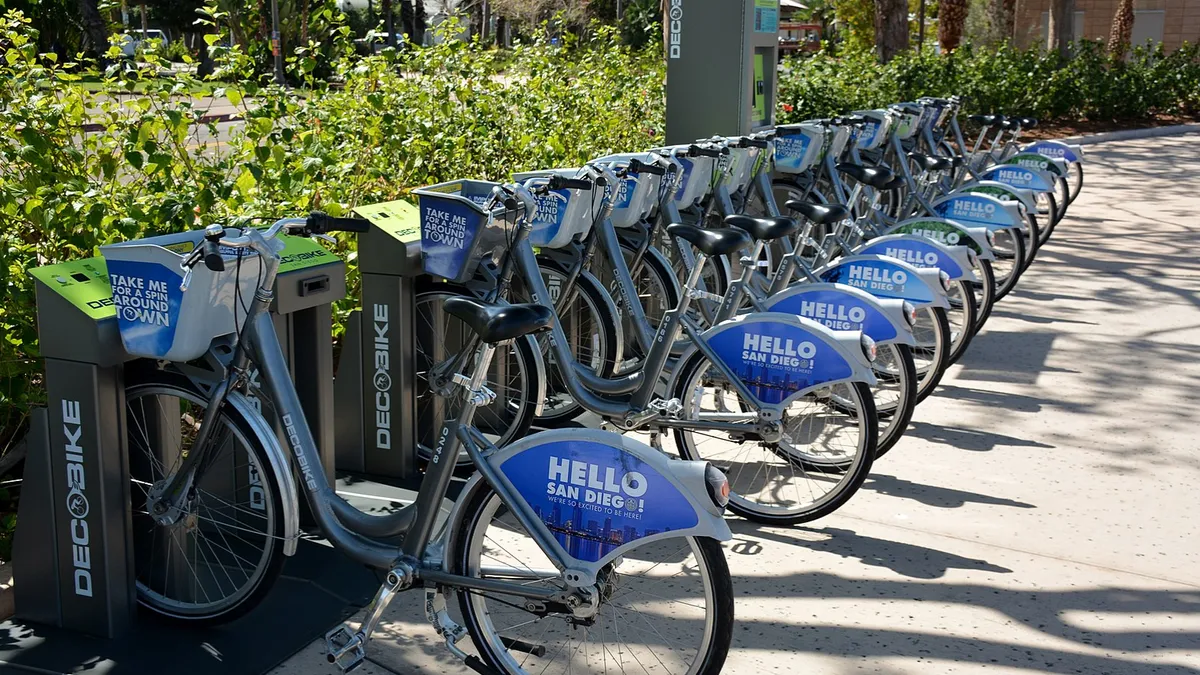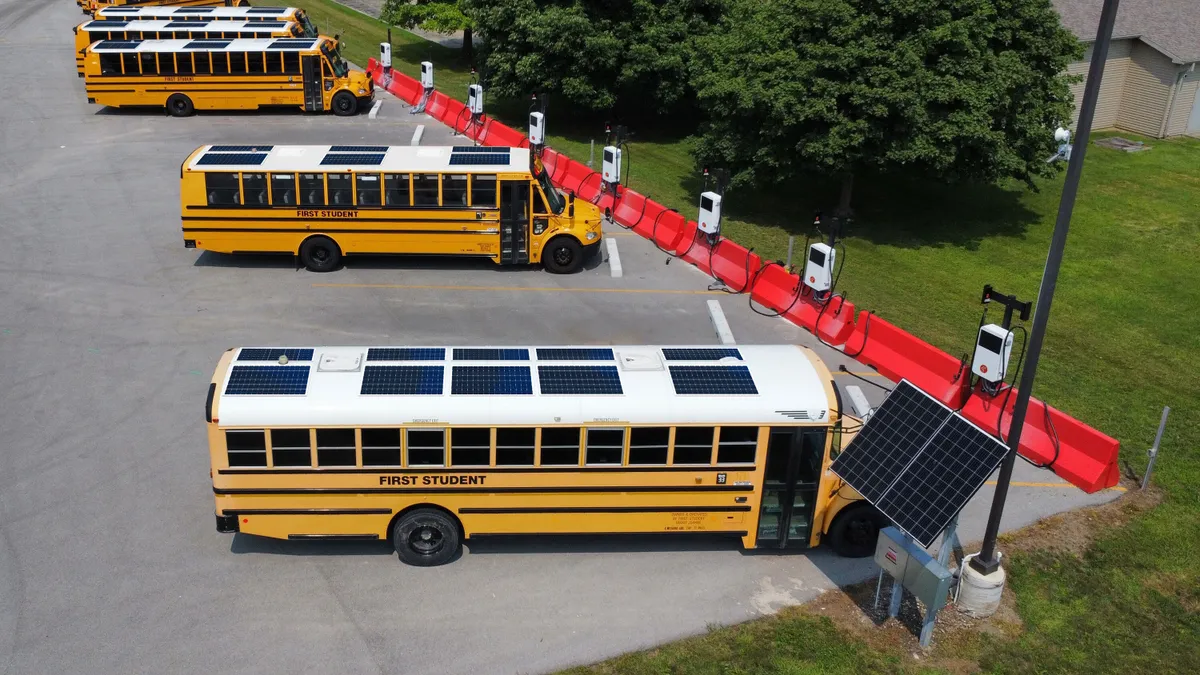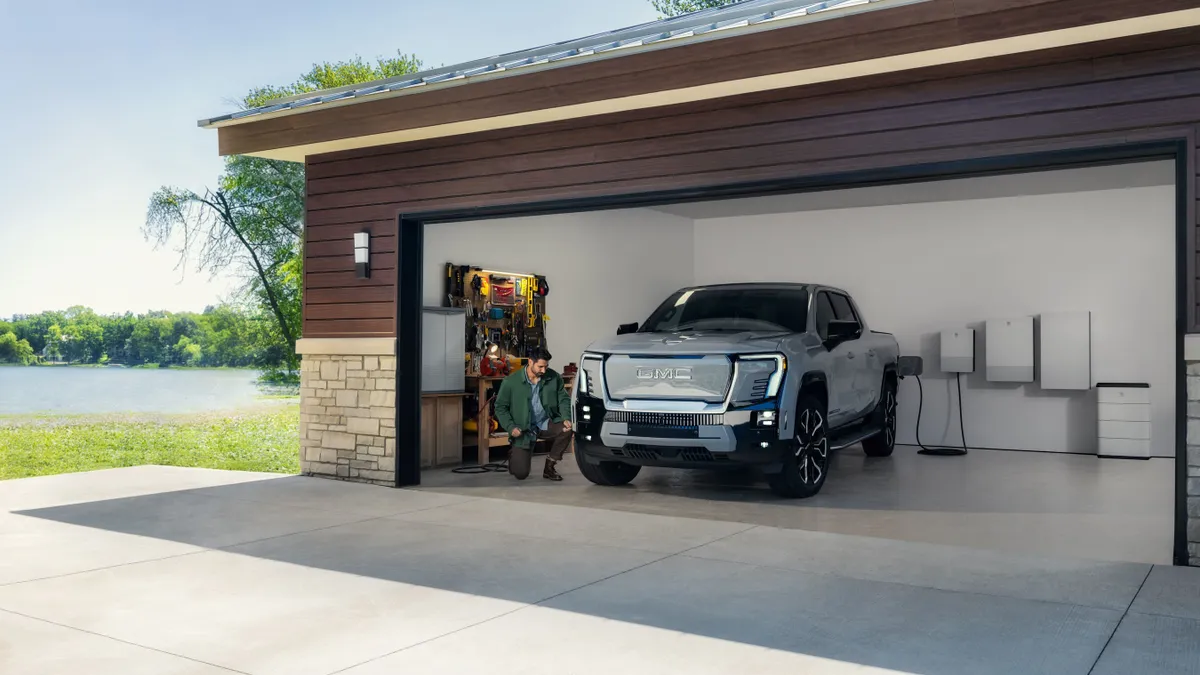Today, the North American Bikeshare Association (NABSA) meets for its annual conference, Moving Forward Together, which takes place during a transformation for the bike-sharing industry.
Unlike prior conferences, this year's conversation is sure to center around the growth of dockless bikes, which exploded on the scene over the past 12 months. While the bike-share industry has seen some companies such as Lime or Jump spread into new territories and strike up impressive partnerships, it has also seen companies like ofo that have shuttered operations in the U.S., citing regulations.
The conference in Portland, OR is hosted alongside the Better Bike Share Partnership, and promises to have hundreds of industry experts from the public and private sectors to discuss strategies for the future.
"This year, I would say our themes are bike-share equity and innovation in the industry as we've seen a lot of innovation over this past year," NABSA Executive Director Samantha Herr told Smart Cities Dive. “We're a booming industry, so there's a lot of new growth and opportunities that we'll be discussing."
Smart Cities Dive caught up with Herr just before the conference to discuss this year's objectives and what the bike-share landscape could look in the coming years, and to zero in on potentially industry-changing decisions, like the acquisitions of Jump and Motivate by Uber and Lyft, respectively.
This interview has been edited for clarity and brevity.
SMART CITIES DIVE: How can bike-share help with promoting equitable transportation?
SAMANTHA HERR: For one, it's a great first-mile, last-mile solution to connect more people with already-existing public transit networks. Bike-share also fills transit deserts where public transit systems don't serve certain areas, so bike-share is a way to expand that and serve underserved areas that typically don't have access to public transit. Bike-share is also low-cost and affordable, so it can be accessed that way. Then importantly, within the bike-share industry there is a lot of effort to make bike-sharing specifically more accessible, affordable and equitable.
What more can be done to improve equity, since it's something we always strive to get better at it?
HERR: [The Better Bike Share Partnership has] developed principles around community outreach, such as ambassador programs. They've developed best practices around cost and affordability, such as subsidized memberships. They've developed best practices around technological accessibility such as ways that bike-share systems and technologies can be accessible to unbanked populations such as cash payment systems or partnerships with transit networks. I would say increasing equity really, one great way to do that is to expand these practices throughout all the different bike-share applications and systems that we're seeing.
One apparent trend is that bike-share companies unexpectedly put dockless vehicles on the streets and leave cities scrambling to create policy. What can cities do to be proactive and prevent that scenario?
HERR: Becoming a NABSA member and attending the conference and educating yourself is step one. Step two would be, being prepared with however your city wants to handle the management of dockless companies in your city. Once you're educated, make the decisions for your city, whether that's a permit process or a procurement process or however you want to go about it. Have a plan, understand your goals — that certainly goes a long way.
How can cities and dockless companies build better relationships, given previous distrust?
HERR: I think the gap and companies coming in before there's a permit, those strategies have been re-evaluated by a number of companies. We're seeing less of that now and we're seeing more collaboration and more communication prior to bicycles being dropped. I can't speak for scooters. There's already a closing gap there. NABSA works constantly, bringing bike-share entrepreneurs and cities together to have these conversations.
Some companies have taken away bikes and replaced them with scooters. Do you see that happening more and being more of a trend, or is it a city-by-city thing?
HERR: I don't see it as a trend in bike-share. It's not the case that all dockless bike-share companies are getting into the scooter business or even making scooters their primary vehicle mode. Bike-share is alive and well. There are plenty of bike-share companies and bike-share startups that have come about in the past year or two that are only focusing on bikes still. It's not the case that we see that all these companies are transitioning into scooter companies. The companies that we see doing that have made a particular internal decision for their company to go ahead and do that. I wouldn't necessarily call it a trend. I would say we have more of a diversity of these shared mobility modes, and companies are making decisions for themselves on how they're going to traverse this new landscape.
"Bike-share is alive and well. ... It's not the case that we see that all these companies are transitioning into scooter companies."

Samantha Herr
Executive Director, NABSA
This year, ride-hailing companies got involved as Uber bought Jump and Lyft bought Motivate. How does that affect the marketplace in bike-share?
HERR: I think it's ultimately still too early to tell, but NABSA is enthusiastic about what this says about the industry: It's healthy, it's growing and we've got a lot of private sector investment, which two years ago I'm not sure we ever could have predicted or imagined the extent of. In terms of effects, we see it as positive. This will allow bike-share to become more tightly-woven into the shared mobility landscape.
Uber and Lyft both have other mobility platforms, so this ties that together. Also, creating a more seamless user experience for riders of these different shared mobility modes and transportation integration, we see that. Beyond that, it's a very interesting time and we'll have to see how it unfolds. From where we're standing now, NABSA certainly sees it as positive.
What kind of relationship do you see dockless and docked bike-share having? Is everyone going to keep growing together?
HERR: I think we are going to have both technologies and styles and hybrids of them all existing together. With that said, not every market is going to look the same. So you're going to have some markets that have dockless bike-share and docked bike-share, and experiments with electric bikes, which is a huge innovation in the bike-share industry that's growing with tremendous speed.
I think you're going to see an expansion of the application of docked and station-based and everything in between, and some markets are going to have all options, like Washington, DC. But other markets are going to have one or the other; it's going to look different in different markets depending on the unique circumstances of each city: size, density, everything. Bike-share is not one-size-fits-all, and the bike-share system or systems available are going to reflect the unique needs of each city and each locality.




















